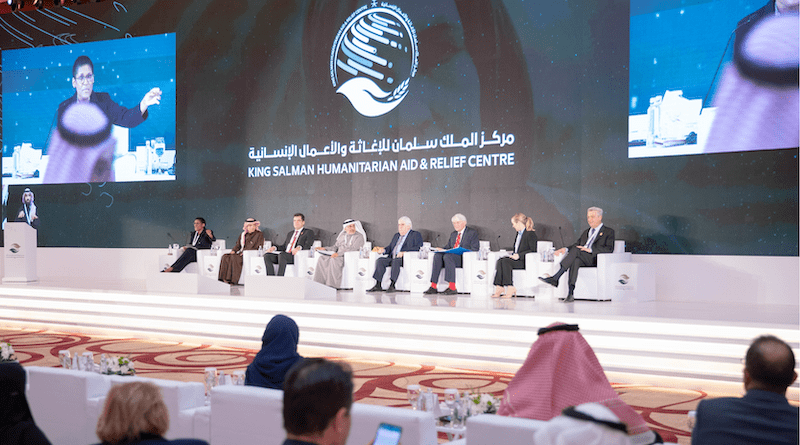Are We On Right Path To Deal With World Humanitarian Needs For Global Challenges? – OpEd
Humankind is seeing a surge on the humanitarian needs in all places of the planet, for challenges ranging from refugee’s crisis to victims of natural disasters, with people affected increasingly by wars, conflicts and famines. The recent humanitarian catastrophe in Türkiye and Syria showed not only that we humans are very much dependent on our planet force impacting our fragile infrastructures, but that we as world population are still far from being able to react promptly and efficiently, to save lives, alleviate suffering, and maintain human dignity of our fellow humans around the world.
According to the United Nations Office for the Coordination of Humanitarian Affairs (OCHA), the terrible earthquakes that struck Türkiye and Syria had an impact on around 9 million people and for the next three months we will need $1.4 billion. This seems still nothing respect to what could come as we are at the verge of a new era in terms of humanitarian disasters and needs for human security. According to the International Committee of the Red Cross (ICRC) by 2050 200 million people will be in need of humanitarian assistance, due to conflicts, migrations and mostly ecological disasters, and the world will need at least $20 billion to deal with it. It is evident that future threats will force us to have new systems to protect human security around the world.
Since the UN World Humanitarian Summit held in Istanbul in 2016 by the initiative of former UN Secretary General Ban Ki-moon, not many progresses have been made. The “Grand Bargain”, an “Agenda for Humanity” that was agreed during the Forum, didn’t reach much of the objectives. Periodical forums and conferences on humanitarian issues have been held until today (in few weeks the European Humanitarian Forum will take place in Bruxelles for example) but the problem is that after words the deeds are not always following. Recently, the 3rd Riyadh International Humanitarian Forum was held in Saudi Arabia, attended by humanitarian leaders, donors and practitioners to promote dialogue on legislative, informational, and logistical mechanisms for delivering humanitarian aid. Again, many interesting propositions but what we really need is the political will of decision makers to realize a huge program for the future of our humanity.
Among the final recommendations of the Riyadh Forum, one is “Anticipatory Action: Strengthening the Resilience of Local Communities”, recommending to build the capacity of local actors to better respond to crises. This element is very important because the resilience come from the level of “social capital” a community developed in time, and so we need to strengthen our communities to develop such ability to react and recuperate after disasters.
Nevertheless, what really matters is a coordinated global top-down approach that need to be strengthened, in particular regarding funds, again as the recent disaster in Türkiye and Syria showed. UN OCHA has already some funds like the Country-based Pooled Funds (CBPF) that allow donors to pool their contributions into single, unearmarked funds to support local humanitarian efforts, or the Central Emergency Response Fund (CERF)to enable more timely and reliable humanitarian assistance to those affected by natural disasters and armed conflicts. But they are not enough if UN recently launched appeals for those $ 1.4 billion to help in the Türkiye-Syria disaster.
Actually, the problem of reacting every time to supernatural events asking for support to all countries is that it takes time, and good will of nation states around the world. Instead, to have already a common fund, ready to be used, and a system of quick reaction much faster than the current one would represent a great change at international level. OCHA should therefore create a special fund ready to be used with a system to address quickly next big disasters.
Another important help on how to deal better with humanitarian aid and support could come from the technological revolution. Again, at the Riyadh Forum leaders spoke about assessing humanitarian needs and monitor interventions that result in a meaningful impact on affected populations, and how all this could be helped by AI and big data analysis. As Direct Relief, a top-rated American humanitarian charity that equip doctors and nurses with lifesaving medical, does to understand what medicines are requested most often for which emergency, we could increase the use AI to tracks data from a range of past disaster response operations to find patterns and improve humanitarian operations.
Finally we don’t have to forget about the potential of civil-military (CIVMIL) cooperation to deal with humanitarian needs in future disasters. There are already many researches on the important of CIVMIL cooperation in disaster and emergency response and this will be increasingly important as civilians’ infrastructures will not have the logistic efficient ability to project support in all areas and in all conditions and conflicts are increasingly affecting civilians, as we can see in Ukraine and Syria conflicts but also in the recent earthquakes disasters.
There will be many threats to human security this century, from climate change to technological disruption, from demographic bomb and migrations to epidemics and health crisis, that will increase the humanitarian disasters everywhere. The world gatherings need therefore to underline that everyone will be affected by humanitarian needs in the future and every country will have to contribute to responses of disasters. To be on the right path for this, decision-makers will need strong political will and start taking visionary and cooperative actions to prepare for a better future for our planet and humankind. It would be a way also to give UN a new boost, and maybe reforming its system towards a real “world government”, helping humankind to finally come together as a whole.
Dr. Maurizio Geri, Senior strategic analyst in International Affairs/Security. Recipient Marie Curie Global fellowship 2024-26 with GMU/BSIS/Ca’ Foscari

